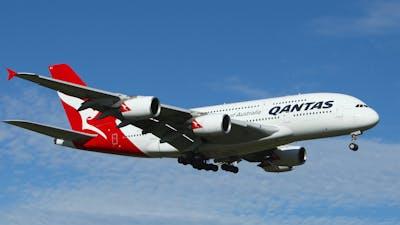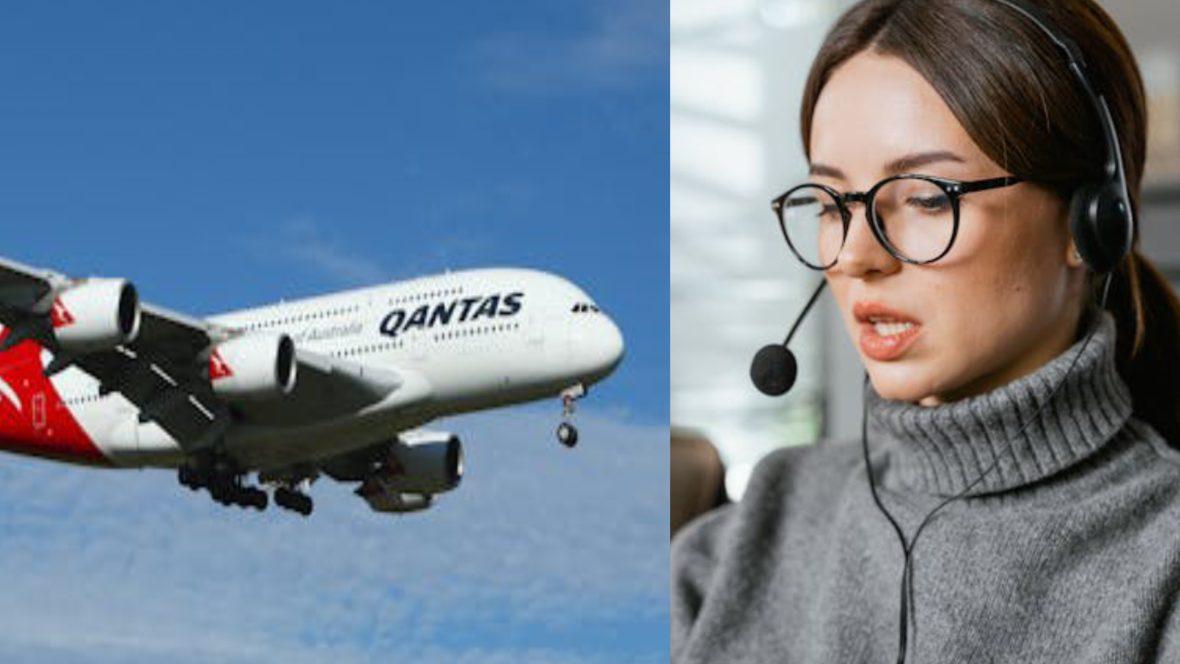This write-up is going to reveal to you everything you need to know to becoming a travel agent in Nigeria. You are going to. learn how to set up travel agency , necessary certifications, dangers and ways of mitigating the dangers and government agencies you might meet in the course of establishing one .

STEPS
- Acquire Relevant Education and Certifications
Educational Background
Tourism or Hospitality Management Degree: A degree in these fields from a Nigerian university or polytechnic is advantageous but not mandatory.
Cost: Tuition fees can range from ₦100,000 to ₦500,000 per year, depending on the institution.
Professional Certifications
International Air Transport Association (IATA): Offers courses such as Travel and Tourism Foundation Diploma.
Cost: Approximately $500 – $2,000 (₦230,000 – ₦920,000).
Nigeria Tourism Development Corporation (NTDC): Provides local certifications.
Cost: Varies, typically around ₦50,000 – ₦100,000. - Gain Experience
Work with Established Travel Agencies
Internships: Seek internships with reputable travel agencies to gain hands-on experience.
Volunteer Work: Engage in volunteer work with tourism boards or NGOs involved in tourism. - Build Your Skill Set
Essential Skills
Customer Service: Develop excellent communication and interpersonal skills.
Technical Skills: Learn to use travel booking systems like Amadeus, Sabre, or Galileo.
Marketing Skills: Acquire digital marketing skills, including SEO, social media marketing, and content creation. - Create a Professional Online Presence
Website Development
Professional Website: Build a website showcasing your services, expertise, and client testimonials.
Cost: Website development can range from ₦50,000 to ₦300,000 depending on complexity.
Hosting and Domain: Yearly hosting and domain registration may cost around ₦10,000 – ₦50,000.
Social Media Marketing
Platforms: Use Facebook, Instagram, Twitter, and LinkedIn to promote your services.
Cost: Advertising on these platforms can vary; budget at least ₦20,000 – ₦100,000 monthly for promotions. - Utilize Online Travel Platforms
Travel Booking Systems
Global Distribution Systems (GDS): Familiarize yourself with Amadeus, Sabre, or Galileo.
Cost: Training on these systems can cost around ₦100,000 – ₦300,000.
Freelance Platforms
Upwork: Offer your consultancy services on freelancing sites.
TripAdvisor: Create a profile to offer personalized travel planning services.
Travel Counsellors: Join networks that support independent travel consultants. - Legal and Business Setup
Register Your Business
Corporate Affairs Commission (CAC): Register your business name.
Cost: Business name registration is around ₦10,000 – ₦15,000.
Tax Identification Number (TIN)
Federal Inland Revenue Service (FIRS): Obtain a TIN for your business.
Cost: Free of charge but may involve incidental expenses.
Business Bank Account
Bank Setup: Open a dedicated business bank account.
Cost: Initial deposit requirements vary by bank, typically around ₦5,000 – ₦50,000. - Network and Partnerships
Join Travel Associations
National Association of Nigerian Travel Agencies (NANTA): Membership offers credibility and networking opportunities.
Cost: Membership fees can range from ₦50,000 to ₦150,000 annually.
Partner with Airlines and Hotels
Partnerships: Establish relationships with airlines, hotels, and tour operators to provide comprehensive travel packages. - Continuous Learning and Adaptation
Stay Updated
Industry Trends: Regularly update yourself on travel advisories and new destinations.
Professional Development: Continually seek new certifications and skills.
Useful Websites
International Air Transport Association (IATA): www.iata.org
The Travel Institute: www.thetravelinstitute.com
Upwork: www.upwork.com
TripAdvisor: www.tripadvisor.com
Travel Counsellors: www.travelcounsellors.com
Corporate Affairs Commission (CAC): www.cac.gov.ng
Federal Inland Revenue Service (FIRS): www.firs.gov.ng
By following these steps and making the necessary financial investments, you can successfully establish yourself as an online travel consultant in Nigeria.

WAYS TO MAKE MONEY AS TRAVEL AGENT
Making money as an online travel consultant in Nigeria involves various revenue streams. Here’s how you can monetize your services effectively:
- Service Fees
Trip Planning and Consultation Fees
Personalized Travel Itineraries: Charge clients a fee for creating customized travel itineraries, including flights, accommodations, activities, and transportation.
Example Fees: ₦10,000 – ₦50,000 per itinerary depending on complexity and client requirements.
Consultation Sessions: Offer paid consultation sessions for travel advice and recommendations.
Example Fees: ₦5,000 – ₦20,000 per hour. - Commissions
Airline Tickets
Commission from Airlines: Earn a commission from airlines for booking tickets through global distribution systems (GDS) like Amadeus, Sabre, or Galileo.
Typical Commission: 5% – 10% of the ticket price.
Hotels and Accommodations
Commission from Hotels: Partner with hotels and earn commissions for bookings made through your referral.
Typical Commission: 10% – 15% of the booking value.
Tour Operators
Commission from Tours: Collaborate with local and international tour operators and earn a commission for every tour package sold.
Typical Commission: 10% – 20% of the tour package cost. - Affiliate Marketing
Travel Products and Services
Affiliate Programs: Sign up for affiliate programs offered by travel companies, booking platforms, and travel gear retailers.
Examples: Join programs from websites like Booking.com, Agoda, or Amazon.
Earnings: Earn a percentage of sales generated through your affiliate links. - Value-Added Services
Travel Insurance
Sell Travel Insurance: Partner with insurance companies to offer travel insurance to clients.
Commission: 10% – 20% of the insurance premium.
Visa Assistance
Visa Processing Fees: Offer visa processing services for a fee.
Example Fees: ₦20,000 – ₦50,000 per visa application depending on the complexity and country. - Group Travel Packages
Organize Group Tours
Group Tours: Plan and organize group tours to popular destinations. Charge participants a fee that covers the cost and includes your markup.
Example Markup: 10% – 30% above the cost price. - Corporate Travel Management
Corporate Clients
Corporate Travel Services: Offer travel management services to corporate clients, including booking flights, accommodations, and arranging travel itineraries for business trips.
Retainer Fees: Charge a monthly retainer or per-service fee.
Example Fees: ₦100,000 – ₦500,000 per month depending on the size of the company and the volume of travel services required. - Travel Blogging and Content Creation
Monetize Content
Travel Blog: Create a travel blog with useful content and monetize it through ads, sponsored posts, and affiliate marketing.
Ad Revenue: Earn money from displaying ads through Google AdSense or similar ad networks.
Sponsored Posts: Charge brands for sponsored content and reviews. - Educational Services
Training and Workshops
Conduct Training: Offer online courses and workshops on travel planning, booking systems, and digital marketing for aspiring travel consultants.
Course Fees: Charge participants for attending your training sessions.
Example Fees: ₦10,000 – ₦100,000 per course depending on duration and content.
Example Financial Implications:
Initial Setup Costs:
Website development: ₦50,000 – ₦300,000
GDS training: ₦100,000 – ₦300,000
Business registration: ₦10,000 – ₦15,000
Marketing and advertising: ₦20,000 – ₦100,000 monthly
Potential Monthly Income:
Service fees: ₦100,000 – ₦500,000
Commissions: ₦50,000 – ₦300,000
Affiliate marketing: ₦20,000 – ₦100,000
Group travel packages: ₦100,000 – ₦500,000
Corporate travel management: ₦100,000 – ₦500,000
By leveraging these revenue streams and effectively managing your business, you can generate a substantial income as an online travel consultant in Nigeria.
Dangers of this business and how to overcome them
Starting and operating an online travel consultancy in Nigeria, like any business, comes with its share of risks and challenges. Here are some potential dangers and strategies to overcome them:
- Scams and Fraud
Risk
Client Scams: Dealing with fraudulent clients who use stolen credit cards or provide false information.
Vendor Scams: Untrustworthy vendors who fail to deliver promised services.
Mitigation Strategies
Verification Processes: Implement stringent verification processes for clients, such as validating identification and payment methods.
Reputable Vendors: Only work with reputable and verified vendors. Conduct thorough background checks and require contracts. - Regulatory and Legal Challenges
Risk
Non-Compliance: Failing to comply with local regulations and international travel laws can result in fines or business closure.
Changing Regulations: Travel regulations can change rapidly, especially concerning visa requirements, health, and safety protocols.
Mitigation Strategies
Legal Advice: Consult with legal professionals to ensure compliance with all local and international regulations.
Stay Informed: Regularly update yourself on regulatory changes and adapt your business practices accordingly. - Market Competition
Risk
High Competition: The travel industry is highly competitive, with many players offering similar services.
Price Wars: Competing on price can reduce profit margins.
Mitigation Strategies
Unique Selling Proposition (USP): Develop a strong USP that differentiates your services from competitors, such as specialized travel packages or exceptional customer service.
Value-Added Services: Offer value-added services that enhance the client experience, like personalized itineraries, 24/7 support, or exclusive deals. - Economic Instability
Risk
Currency Fluctuations: Fluctuations in the Naira’s value can affect pricing and profitability.
Economic Downturns: Economic instability can reduce discretionary spending on travel.
Mitigation Strategies
Diversify Services: Offer a range of services at different price points to cater to various budgets.
Flexible Pricing: Implement flexible pricing strategies that can adapt to currency fluctuations and economic conditions. - Cybersecurity Threats
Risk
Data Breaches: Handling sensitive client information makes your business a target for cyberattacks.
Phishing and Hacking: Cybercriminals may attempt to hack into your systems or deceive you through phishing schemes.
Mitigation Strategies
Robust Security Measures: Invest in robust cybersecurity measures, including firewalls, encryption, and secure payment gateways.
Employee Training: Train your employees to recognize and respond to cybersecurity threats. - Service Delivery Issues
Risk
Service Failures: Issues like flight cancellations, hotel overbookings, or tour operator failures can harm your reputation.
Client Disputes: Unresolved disputes with clients over service quality or pricing can damage your business.
Mitigation Strategies
Reliable Partners: Partner with reliable airlines, hotels, and tour operators with good track records.
Clear Contracts: Use clear, detailed contracts to outline the terms and conditions of your services.
Customer Support: Provide excellent customer support to handle issues promptly and professionally. - Health and Safety Concerns
Risk
Travel Risks: Health risks, political instability, or natural disasters can affect travel plans.
Pandemics: Health crises like COVID-19 can drastically reduce travel demand.
Mitigation Strategies
Travel Insurance: Encourage clients to purchase travel insurance to cover unforeseen events.
Stay Updated: Keep abreast of travel advisories and health guidelines to advise clients appropriately. - Technological Challenges
Risk
Tech Failures: System outages or software issues can disrupt business operations.
Adoption of New Technology: Staying updated with the latest technology can be challenging and costly.
Mitigation Strategies
Reliable IT Support: Invest in reliable IT support and backup systems.
Continuous Learning: Stay informed about new technology and invest in regular training for yourself and your team.
Conclusion
While there are several risks associated with becoming an online travel consultant in Nigeria, these can be managed effectively with careful planning and strategic action. By adopting robust security measures, staying informed on regulatory and market changes, and continuously improving your service offerings, you can mitigate these risks and build a successful business.
Necessary Government Agencies in Nigeria and Their Functions
When starting and operating an online travel consultancy in Nigeria, it’s crucial to engage with several government agencies to ensure compliance with regulations and legal requirements. Below are the key agencies and their functions:
- Corporate Affairs Commission (CAC)
Functions:
Business Registration: The CAC is responsible for the registration of companies, business names, and incorporated trustees in Nigeria.
Regulation and Oversight: Ensures that companies comply with the provisions of the Companies and Allied Matters Act (CAMA).
Record Maintenance: Maintains a registry of registered entities and provides access to company records.
Website: www.cac.gov.ng
- Federal Inland Revenue Service (FIRS)
Functions:
Tax Administration: Responsible for assessing, collecting, and accounting for federal taxes in Nigeria.
Tax Identification Number (TIN): Issues TINs required for business operations and tax filing.
Tax Compliance: Ensures businesses comply with tax laws and regulations.
Website: www.firs.gov.ng
- National Tourism Development Corporation (NTDC)
Functions:
Tourism Promotion: Promotes Nigeria’s tourism potential both locally and internationally.
Regulation: Regulates the tourism industry, including travel agencies and tour operators.
Certification and Licensing: Provides certifications and licenses for tourism-related businesses.
Website: www.tourism.gov.ng
- Nigerian Civil Aviation Authority (NCAA)
Functions:
Aviation Regulation: Regulates civil aviation in Nigeria to ensure safety and security.
Licensing: Issues licenses to airlines, travel agents, and other aviation-related businesses.
Compliance Monitoring: Ensures compliance with international aviation standards.
Website: www.ncaa.gov.ng
- Nigeria Immigration Service (NIS)
Functions:
Immigration Control: Manages and controls immigration processes and procedures.
Visa Issuance: Issues visas to foreigners and travel documents to Nigerian citizens.
Border Security: Ensures the security of Nigeria’s borders.
Website: www.immigration.gov.ng
- National Agency for Food and Drug Administration and Control (NAFDAC)
Functions:
Health and Safety: Regulates and controls the manufacture, importation, exportation, distribution, advertisement, sale, and use of food, drugs, cosmetics, chemicals, detergents, medical devices, and packaged water.
Compliance: Ensures that travel-related businesses that offer packaged foods and other consumables comply with health and safety standards.
Website: www.nafdac.gov.ng
- Consumer Protection Council (CPC)
Functions:
Consumer Rights: Protects and enforces the rights of consumers in Nigeria.
Dispute Resolution: Provides a platform for resolving disputes between consumers and businesses.
Regulations and Standards: Ensures businesses adhere to consumer protection regulations and standards.
Website: www.cpc.gov.ng
- Nigeria Social Insurance Trust Fund (NSITF)
Functions:
Employee Benefits: Manages the social insurance scheme to protect employees against hazards in the workplace.
Employer Compliance: Ensures businesses comply with social insurance regulations.
Website: www.nsitf.gov.ng
- Small and Medium Enterprises Development Agency of Nigeria (SMEDAN)
Functions:
Support and Development: Provides support and development programs for small and medium enterprises (SMEs) in Nigeria.
Training and Capacity Building: Offers training and capacity-building initiatives to help SMEs grow and succeed.
Website: www.smedan.gov.ng
Conclusion
Engaging with these government agencies is crucial for the successful establishment and operation of your online travel consultancy in Nigeria. Each agency plays a specific role in ensuring that your business complies with legal and regulatory requirements, thus helping you avoid potential pitfalls and enhancing your business’s credibility and sustainability.
How to Become an Online Travel Consultant in Nigeria
Becoming an online travel consultant in Nigeria involves multiple steps, including gaining the necessary education and certifications, acquiring practical experience, setting up your business legally, and building a strong online presence. Here’s a comprehensive guide to help you navigate this path:
- Acquire Relevant Education and Certifications
Educational Background
Tourism or Hospitality Management Degree: A degree in these fields from a Nigerian university or polytechnic is advantageous but not mandatory.
Cost: Tuition fees can range from ₦100,000 to ₦500,000 per year, depending on the institution.
Professional Certifications
International Air Transport Association (IATA): Offers courses such as Travel and Tourism Foundation Diploma.
Cost: Approximately $500 – $2,000 (₦230,000 – ₦920,000).
Nigeria Tourism Development Corporation (NTDC): Provides local certifications.
Cost: Varies, typically around ₦50,000 – ₦100,000. - Gain Experience
Work with Established Travel Agencies
Internships: Seek internships with reputable travel agencies to gain hands-on experience.
Volunteer Work: Engage in volunteer work with tourism boards or NGOs involved in tourism. - Build Your Skill Set
Essential Skills
Customer Service: Develop excellent communication and interpersonal skills.
Technical Skills: Learn to use travel booking systems like Amadeus, Sabre, or Galileo.
Marketing Skills: Acquire digital marketing skills, including SEO, social media marketing, and content creation. - Create a Professional Online Presence
Website Development
Professional Website: Build a website showcasing your services, expertise, and client testimonials.
Cost: Website development can range from ₦50,000 to ₦300,000 depending on complexity.
Hosting and Domain: Yearly hosting and domain registration may cost around ₦10,000 – ₦50,000.
Social Media Marketing
Platforms: Use Facebook, Instagram, Twitter, and LinkedIn to promote your services.
Cost: Advertising on these platforms can vary; budget at least ₦20,000 – ₦100,000 monthly for promotions. - Utilize Online Travel Platforms
Travel Booking Systems
Global Distribution Systems (GDS): Familiarize yourself with Amadeus, Sabre, or Galileo.
Cost: Training on these systems can cost around ₦100,000 – ₦300,000.
Freelance Platforms
Upwork: Offer your consultancy services on freelancing sites.
TripAdvisor: Create a profile to offer personalized travel planning services.
Travel Counsellors: Join networks that support independent travel consultants. - Legal and Business Setup
Register Your Business
Corporate Affairs Commission (CAC): Register your business name.
Cost: Business name registration is around ₦10,000 – ₦15,000.
Tax Identification Number (TIN)
Federal Inland Revenue Service (FIRS): Obtain a TIN for your business.
Cost: Free of charge but may involve incidental expenses.
Business Bank Account
Bank Setup: Open a dedicated business bank account.
Cost: Initial deposit requirements vary by bank, typically around ₦5,000 – ₦50,000. - Network and Partnerships
Join Travel Associations
National Association of Nigerian Travel Agencies (NANTA): Membership offers credibility and networking opportunities.
Cost: Membership fees can range from ₦50,000 to ₦150,000 annually.
Partner with Airlines and Hotels
Partnerships: Establish relationships with airlines, hotels, and tour operators to provide comprehensive travel packages. - Continuous Learning and Adaptation
Stay Updated
Industry Trends: Regularly update yourself on travel advisories and new destinations.
Professional Development: Continually seek new certifications and skills.
Useful website
International Air Transport Association (IATA): www.iata.org
The Travel Institute: www.thetravelinstitute.comwww.thetravelinstitute.com
Upwork: www.upwork.com
TripAdvisor: www.tripadvisor.com
Travel Counsellors: www.travelcounsellors.com
Corporate Affairs Commission (CAC): www.cac.gov.ng
Federal Inland Revenue Service (FIRS): www.firs.gov.ng
By following these steps and making the necessary financial investments, you can successfully establish yourself as an online travel consultant in Nigeria.
WAYS TO MAKE MONEY IN THE BUSINESS
Making money as an online travel consultant in Nigeria involves various revenue streams. Here’s how you can monetize your services effectively:
- Service Fees
Trip Planning and Consultation Fees
Personalized Travel Itineraries: Charge clients a fee for creating customized travel itineraries, including flights, accommodations, activities, and transportation.
Example Fees: ₦10,000 – ₦50,000 per itinerary depending on complexity and client requirements.
Consultation Sessions: Offer paid consultation sessions for travel advice and recommendations.
Example Fees: ₦5,000 – ₦20,000 per hour. - Commissions
Airline Tickets
Commission from Airlines: Earn a commission from airlines for booking tickets through global distribution systems (GDS) like Amadeus, Sabre, or Galileo.
Typical Commission: 5% – 10% of the ticket price.
Hotels and Accommodations
Commission from Hotels: Partner with hotels and earn commissions for bookings made through your referral.
Typical Commission: 10% – 15% of the booking value.
Tour Operators
Commission from Tours: Collaborate with local and international tour operators and earn a commission for every tour package sold.
Typical Commission: 10% – 20% of the tour package cost. - Affiliate Marketing
Travel Products and Services
Affiliate Programs: Sign up for affiliate programs offered by travel companies, booking platforms, and travel gear retailers.
Examples: Join programs from websites like Booking.com, Agoda, or Amazon.
Earnings: Earn a percentage of sales generated through your affiliate links. - Value-Added Services
Travel Insurance
Sell Travel Insurance: Partner with insurance companies to offer travel insurance to clients.
Commission: 10% – 20% of the insurance premium.
Visa Assistance
Visa Processing Fees: Offer visa processing services for a fee.
Example Fees: ₦20,000 – ₦50,000 per visa application depending on the complexity and country. - Group Travel Packages
Organize Group Tours
Group Tours: Plan and organize group tours to popular destinations. Charge participants a fee that covers the cost and includes your markup.
Example Markup: 10% – 30% above the cost price. - Corporate Travel Management
Corporate Clients
Corporate Travel Services: Offer travel management services to corporate clients, including booking flights, accommodations, and arranging travel itineraries for business trips.
Retainer Fees: Charge a monthly retainer or per-service fee.
Example Fees: ₦100,000 – ₦500,000 per month depending on the size of the company and the volume of travel services required. - Travel Blogging and Content Creation
Monetize Content
Travel Blog: Create a travel blog with useful content and monetize it through ads, sponsored posts, and affiliate marketing.
Ad Revenue: Earn money from displaying ads through Google AdSense or similar ad networks.
Sponsored Posts: Charge brands for sponsored content and reviews. - Educational Services
Training and Workshops
Conduct Training: Offer online courses and workshops on travel planning, booking systems, and digital marketing for aspiring travel consultants.
Course Fees: Charge participants for attending your training sessions.
Example Fees: ₦10,000 – ₦100,000 per course depending on duration and content.
Example Financial Implications:
Initial Setup Costs:
Website development: ₦50,000 – ₦300,000
GDS training: ₦100,000 – ₦300,000
Business registration: ₦10,000 – ₦15,000
Marketing and advertising: ₦20,000 – ₦100,000 monthly
Potential Monthly Income:
Service fees: ₦100,000 – ₦500,000
Commissions: ₦50,000 – ₦300,000
Affiliate marketing: ₦20,000 – ₦100,000
Group travel packages: ₦100,000 – ₦500,000
Corporate travel management: ₦100,000 – ₦500,000
By leveraging these revenue streams and effectively managing your business, you can generate a substantial income as an online travel consultant in Nigeria.
DANGERS & WAYS OF MITIGATING THEM
Starting and operating an online travel consultancy in Nigeria, like any business, comes with its share of risks and challenges. Here are some potential dangers and strategies to overcome them:
- Scams and Fraud
Risk
Client Scams: Dealing with fraudulent clients who use stolen credit cards or provide false information.
Vendor Scams: Untrustworthy vendors who fail to deliver promised services.
Mitigation Strategies
1.0Verification Processes: Implement stringent verification processes for clients, such as validating identification and payment methods.
Reputable Vendors: Only work with reputable and verified vendors. Conduct thorough background checks and require contracts.
- Regulatory and Legal Challenges
Risk
Non-Compliance: Failing to comply with local regulations and international travel laws can result in fines or business closure.
Changing Regulations: Travel regulations can change rapidly, especially concerning visa requirements, health, and safety protocols.
Mitigation Strategies
Legal Advice: Consult with legal professionals to ensure compliance with all local and international regulations.
Stay Informed: Regularly update yourself on regulatory changes and adapt your business practices accordingly.
- Market Competition
Risk
High Competition: The travel industry is highly competitive, with many players offering similar services.
Price Wars: Competing on price can reduce profit margins.
Mitigation Strategies
Unique Selling Proposition (USP): Develop a strong USP that differentiates your services from competitors, such as specialized travel packages or exceptional customer service.
Value-Added Services: Offer value-added services that enhance the client experience, like personalized itineraries, 24/7 support, or exclusive deals. - Economic Instability
Risk
Currency Fluctuations: Fluctuations in the Naira’s value can affect pricing and profitability.
Economic Downturns: Economic instability can reduce discretionary spending on travel.
Mitigation Strategies
Diversify Services: Offer a range of services at different price points to cater to various budgets.
Flexible Pricing: Implement flexible pricing strategies that can adapt to currency fluctuations and economic conditions. - Cybersecurity Threats
Risk
Data Breaches: Handling sensitive client information makes your business a target for cyberattacks.
Phishing and Hacking: Cybercriminals may attempt to hack into your systems or deceive you through phishing schemes.
Mitigation Strategies
Robust Security Measures: Invest in robust cybersecurity measures, including firewalls, encryption, and secure payment gateways.
Employee Training: Train your employees to recognize and respond to cybersecurity threats. - Service Delivery Issues
Risk
Service Failures: Issues like flight cancellations, hotel overbookings, or tour operator failures can harm your reputation.
Client Disputes: Unresolved disputes with clients over service quality or pricing can damage your business.
Mitigation Strategies
Reliable Partners: Partner with reliable airlines, hotels, and tour operators with good track records.
Clear Contracts: Use clear, detailed contracts to outline the terms and conditions of your services.
Customer Support: Provide excellent customer support to handle issues promptly and professionally. - Health and Safety Concerns
Risk
Travel Risks: Health risks, political instability, or natural disasters can affect travel plans.
Pandemics: Health crises like COVID-19 can drastically reduce travel demand.
Mitigation Strategies
Travel Insurance: Encourage clients to purchase travel insurance to cover unforeseen events.
Stay Updated: Keep abreast of travel advisories and health guidelines to advise clients appropriately. - Technological Challenges
Risk
Tech Failures: System outages or software issues can disrupt business operations.
Adoption of New Technology: Staying updated with the latest technology can be challenging and costly.
Mitigation Strategies
Reliable IT Support: Invest in reliable IT support and backup systems.
Continuous Learning: Stay informed about new technology and invest in regular training for yourself and your team.
Conclusion
While there are several risks associated with becoming an online travel consultant in Nigeria, these can be managed effectively with careful planning and strategic action. By adopting robust security measures, staying informed on regulatory and market changes, and continuously improving your service offerings, you can mitigate these risks and build a successful business.
GOVERNMENT AGENCIES NECESSARY TO THE FORMATION OF TRAVEL AGENCY
Necessary Government Agencies in Nigeria and Their Functions
When starting and operating an online travel consultancy in Nigeria, it’s crucial to engage with several government agencies to ensure compliance with regulations and legal requirements. Below are the key agencies and their functions:
- Corporate Affairs Commission (CAC)
Functions:
Business Registration: The CAC is responsible for the registration of companies, business names, and incorporated trustees in Nigeria.
Regulation and Oversight: Ensures that companies comply with the provisions of the Companies and Allied Matters Act (CAMA).
Record Maintenance: Maintains a registry of registered entities and provides access to company records.
Website: www.cac.gov.ng
- Federal Inland Revenue Service (FIRS)
Functions:
Tax Administration: Responsible for assessing, collecting, and accounting for federal taxes in Nigeria.
Tax Identification Number (TIN): Issues TINs required for business operations and tax filing.
Tax Compliance: Ensures businesses comply with tax laws and regulations.
Website: www.firs.gov.ng
- National Tourism Development Corporation (NTDC)
Functions:
Tourism Promotion: Promotes Nigeria’s tourism potential both locally and internationally.
Regulation: Regulates the tourism industry, including travel agencies and tour operators.
Certification and Licensing: Provides certifications and licenses for tourism-related businesses.
Website: www.tourism.gov.ng
- Nigerian Civil Aviation Authority (NCAA)
Functions:
Aviation Regulation: Regulates civil aviation in Nigeria to ensure safety and security.
Licensing: Issues licenses to airlines, travel agents, and other aviation-related businesses.
Compliance Monitoring: Ensures compliance with international aviation standards.
Website: www.ncaa.gov.ng
- Nigeria Immigration Service (NIS)
Functions:
Immigration Control: Manages and controls immigration processes and procedures.
Visa Issuance: Issues visas to foreigners and travel documents to Nigerian citizens.
Border Security: Ensures the security of Nigeria’s borders.
Website: www.immigration.gov.ng
- National Agency for Food and Drug Administration and Control (NAFDAC)
Functions:
Health and Safety: Regulates and controls the manufacture, importation, exportation, distribution, advertisement, sale, and use of food, drugs, cosmetics, chemicals, detergents, medical devices, and packaged water.
Compliance: Ensures that travel-related businesses that offer packaged foods and other consumables comply with health and safety standards.
Website: www.nafdac.gov.ng
- Consumer Protection Council (CPC)
Functions:
Consumer Rights: Protects and enforces the rights of consumers in Nigeria.
Dispute Resolution: Provides a platform for resolving disputes between consumers and businesses.
Regulations and Standards: Ensures businesses adhere to consumer protection regulations and standards.
Website: www.cpc.gov.ng
- Nigeria Social Insurance Trust Fund (NSITF)
Functions:
Employee Benefits: Manages the social insurance scheme to protect employees against hazards in the workplace.
Employer Compliance: Ensures businesses comply with social insurance regulations.
Website: www.nsitf.gov.ng
- Small and Medium Enterprises Development Agency of Nigeria (SMEDAN)
Functions:
Support and Development: Provides support and development programs for small and medium enterprises (SMEs) in Nigeria.
Training and Capacity Building: Offers training and capacity-building initiatives to help SMEs grow and succeed.
Website: www.smedan.gov.ng
Conclusion
Engaging with these government agencies is crucial for the successful establishment and operation of your online travel consultancy in Nigeria. Each agency plays a specific role in ensuring that your business complies with legal and regulatory requirements, thus helping you avoid potential pitfalls and enhancing your business’s credibility and sustainability.




